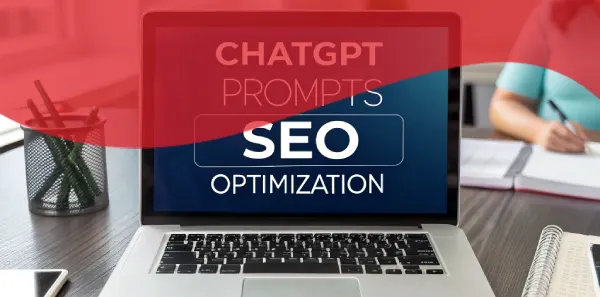Have you ever felt overwhelmed by the sheer volume of SEO tasks, from keyword brainstorming to technical audits, especially with Google’s algorithms evolving faster than ever? In 2025, where AI tools are used by 86% of SEO professionals to cut down on manual work, ChatGPT prompts for SEO optimization are becoming essential for efficiency and results. This guide delivers 100 carefully curated prompts to elevate your SEO game, covering every aspect from research to advanced tactics. Whether you’re optimizing content for featured snippets or analyzing competitor strategies, these prompts will help you save time while driving organic growth. Keep reading to learn how to harness AI for superior SEO performance.
The Power of ChatGPT in SEO: Why It Matters
In the competitive world of search engine optimization, staying ahead requires tools that amplify human creativity and precision. ChatGPT, powered by OpenAI’s advanced models, excels at generating ideas, analyzing data, and automating repetitive tasks. A study by SEMrush indicates that AI-integrated SEO strategies can improve efficiency by up to 40%, allowing professionals to focus on high-level strategy.
The challenge? Many SEOs underutilize ChatGPT due to vague prompts, leading to subpar outputs. The solution lies in prompt engineering—crafting detailed, context-rich instructions. This article builds on insights from leading resources like Search Engine Land and Victorious, expanding to 100 prompts across comprehensive categories. By using these, you’ll address common pain points like keyword gaps, content stagnation, and technical bottlenecks.
These prompts are versatile: adapt them for your niche, audience, or goals. Remember, AI is a supplement—always verify outputs with tools like Google Search Console or Ahrefs for accuracy.
Elements of Effective ChatGPT Prompts for SEO
Drawing from best practices, a strong prompt includes:
- Role Assignment: Tell ChatGPT its persona, e.g., “You’re an SEO expert specializing in e-commerce.”
- Clarity and Specificity: Specify format (lists, tables), length, and metrics.
- Context and Goals: Include audience, intent, or objectives like “improve CTR.”
- Examples and Data: Provide samples, competitor info, or past content.
- Iteration: Refine based on outputs to avoid hallucinations.
Google’s guidelines support AI use for quality content, not manipulation—focus on user value to avoid penalties.
Mastering Prompt Engineering for SEO Success
Prompt engineering is the art of refining inputs for optimal outputs. Start broad, then iterate: if a keyword prompt yields generic terms, add “focus on low-competition long-tail variations.” Experiment with versions like GPT-3.5 vs. GPT-4 for nuanced results. Pro tip: Use “shift+enter” for multi-line prompts to maintain structure.
Benefits include time savings (up to 50% per HubSpot), enhanced creativity, and democratized access to advanced SEO. Overcome challenges like varying outputs by cross-verifying with real data.
Ready to Elevate Your Local SEO with AI-Powered ChatGPT Strategies?
SEO Consultation Toronto
Partner with Canada Create™ to dominate Toronto’s local search results!
100 ChatGPT Prompts for SEO Optimization
Organized into eight categories inspired by comprehensive SEO workflows, these prompts include examples and tips for use. Categories expand on foundational ones, incorporating advanced and unconventional ideas from expert sources.
Keyword Research Prompts (1-15)
Keyword research identifies user intent and opportunities. These prompts generate ideas, clusters, and analyses—validate with tools for volume/difficulty.
- “Generate 30 long-tail keywords for [niche] with buyer intent, including variations and LSI terms.”
- “Suggest seed keywords for [topic] and expand into clusters for topical authority.”
- “Analyze SERPs for [keyword] and list 15 secondary keywords from top results.”
- “Provide seasonal keyword ideas for [industry], prioritizing low-competition terms.”
- “Create a keyword map for [main keyword], categorizing by top, middle, and bottom funnel.”
- “Recommend voice search queries for [niche] in natural language format.”
- “Identify negative keywords for [campaign] to refine ad targeting.”
- “Generate bottom-funnel keywords for [product] focusing on transactional intent.”
- “Compare keyword difficulty and volume estimates for [keyword1] vs. [keyword2].”
- “Suggest multilingual keywords for [topic] targeting [regions].”
- “List trending keywords in [niche] for 2025 based on emerging patterns.”
- “Find low-competition keywords for [small business] with high conversion potential.”
- “Generate keywords optimized for featured snippets in [topic].”
- “Identify high-CPC keywords for [industry] monetization strategies.”
- “Suggest question-based keywords for [topic] to target People Also Ask.”
Example: For prompt 1 in fitness, it might yield “best home workout routines for beginners without equipment.”
Content Creation and Optimization Prompts (16-30)
Content drives rankings—use these for ideation, drafting, and refinement.
- “Outline a 2500-word blog post on [topic] incorporating [keywords] and user intent.”
- “Generate 10 meta titles and descriptions for [page] to maximize CTR.”
- “Suggest 15 engaging headlines for [content type] with power words.”
- “Create an FAQ section for [page] with 7 questions based on user queries.”
- “Rewrite [paragraph] for better readability and include [LSI keywords].”
- “Brainstorm 20 content ideas for [niche] targeting zero-click SERPs.”
- “Develop a quarterly content calendar aligned with [SEO goals].”
- “Optimize [excerpt] for on-page SEO with headers, links, and alt text.”
- “Generate image alt text for [post] incorporating keywords.”
- “Suggest UGC ideas for [social] to enhance SEO signals.”
- “Draft a video script for [topic] optimized for YouTube SEO.”
- “Create a pillar page intro for [keyword] with 500 words.”
- “Generate email subject lines for [content promotion].”
- “Propose internal linking for [post] with anchor text ideas.”
- “Write product descriptions for [e-commerce] embedding [keywords].”
Example: Prompt 16 could structure a post on “AI in SEO” with sections on benefits and case studies.
On-Page and Technical SEO Prompts (31-45)
Ensure site health with audits and code generation.
- “Audit [URL] for on-page issues and provide fixes.”
- “Generate schema markup for [page type] like recipes or events.”
- “Recommend site speed optimizations for [device].”
- “Create robots.txt template for [site type].”
- “Suggest canonical tags for [duplicate content].”
- “Optimize URL structures for [categories].”
- “Identify broken links on [site] with redirect plans.”
- “Generate XML sitemap for [pages].”
- “Advise on HTTPS and security for SEO.”
- “Check [URL] for mobile issues and solutions.”
- “Suggest structured data for [post] to get rich snippets.”
- “Analyze [page] for crawl errors.”
- “Generate breadcrumb code for [site].”
- “Recommend image compression for [site].”
- “Create .htaccess for [redirects].”
Example: Prompt 31 might flag missing H1s and suggest additions.
Link Building and Off-Page SEO Prompts (46-60)
Build authority through strategic outreach.
- “Find backlink opportunities in [niche] from DA 50+ sites.”
- “Draft guest post outreach email for [topic].”
- “Analyze [competitor] backlinks and replication tactics.”
- “Suggest broken link targets for [content].”
- “List resource pages for [industry] links.”
- “Recommend influencers for [brand] collaborations.”
- “Generate HARO responses for [expertise].”
- “Plan link bait around [viral topic].”
- “Audit backlinks for toxicity and disavow.”
- “Suggest directories for [local SEO].”
- “Propose skyscraper ideas for [content].”
- “Identify blogs for [guest posts].”
- “Draft press release for [brand] links.”
- “Suggest link reclamation for [site].”
- “Create forum strategy for [niche].”
Example: Prompt 47 crafts personalized emails increasing outreach success.
Local SEO Prompts (61-70)
Target geographic searches effectively.
- “Optimize GMB for [business] in [city].”
- “Suggest review responses in [brand voice].”
- “Generate local keywords for [type] in [location].”
- “Create location page content for [cities].”
- “Build local backlink strategy for [business].”
- “Audit citations for [business].”
- “Recommend schema for local events.”
- “Suggest NAP consistency fixes.”
- “Generate meta for local pages.”
- “Plan local content calendar.”
Example: Prompt 64 tailors pages with landmarks and keywords.
SEO Reporting and Analytics Prompts (71-80)
Interpret data for insights.
- “Summarize GSC data for [metric] in plain English.”
- “Create SEO report template with KPIs.”
- “Analyze traffic drops YoY for [site].”
- “Suggest KPIs for [business model].”
- “Interpret GA4 data for SEO trends.”
- “Forecast organic growth based on [data].”
- “Compare MoM performance for [pages].”
- “Generate client summaries from [jargon].”
- “Troubleshoot indexation issues from logs.”
- “Visualize data in table for [metrics].”
Example: Prompt 71 explains impressions vs. clicks simply.
Competitor Analysis Prompts (81-90)
Uncover gaps and strategies.
- “List top competitors for [site].”
- “Analyze [competitor] personas and keywords.”
- “Perform content gap analysis vs. [competitors].”
- “Audit [competitor] E-E-A-T signals.”
- “Review [competitor] overall SEO strategy.”
- “Identify backlink gaps from [competitor].”
- “Compare on-page elements with [rival].”
- “Forecast [competitor] trends for 2025.”
- “Suggest ways to outperform [competitor].”
- “Analyze SERP dominance for [keyword].”
Example: Prompt 83 reveals untapped topics.
Advanced and Unconventional SEO Prompts (91-100)
Innovate with emerging tactics.
- “Generate programmatic templates for [pages].”
- “Predict SGE results for [query].”
- “Strategize for zero-click SERPs on [keyword].”
- “Enhance content with entities for [topic].”
- “Forecast SERP features for [query].”
- “Combine SEO/CRO for [page].”
- “Optimize for AI overviews in [niche].”
- “Create E-E-A-T signals for [content].”
- “Suggest GEO tactics for [brand].”
- “Integrate voice SEO with [strategy].”
Example: Prompt 91 scales landing pages efficiently.
| Category | Prompts | Focus |
|---|---|---|
| Keyword Research | 1-15 | Intent, Clusters, Trends |
| Content Creation | 16-30 | Outlines, Optimization, FAQs |
| On-Page/Technical | 31-45 | Audits, Schema, Speed |
| Link Building | 46-60 | Outreach, Authority |
| Local SEO | 61-70 | Citations, Reviews |
| Reporting/Analytics | 71-80 | Data Insights, KPIs |
| Competitor Analysis | 81-90 | Gaps, Strategies |
| Advanced/Unconventional | 91-100 | AI, GEO, Entities |
This table aids quick navigation.
Benefits of Using These ChatGPT Prompts
Adopting ChatGPT prompts for SEO optimization accelerates workflows, fosters innovation, and reduces costs. Professionals save 40-50% time (Ahrefs 2024), generate diverse ideas, and access expert-level insights freely. For small businesses, it’s a leveler against larger competitors. Address risks like inaccuracies by validating with human review and tools.
Conclusion
In summary, these 50 ChatGPT prompts for SEO optimization offer a comprehensive toolkit to elevate your digital marketing game. From keyword discovery to link building, they’ve got you covered with actionable, AI-powered insights.
By implementing them, you’ll see improved rankings, traffic, and engagement. Don’t wait—start experimenting today and watch your SEO soar. For more tips, subscribe to our newsletter or explore our SEO Resources Hub.
FAQs
Will ChatGPT content hurt SEO rankings?
Not if edited, fact-checked, and aligned with Google’s Helpful Content Guidelines.
Can I rely on ChatGPT alone for keyword research?
Use it for ideation, but validate with SEO tools like Ahrefs or SEMrush.
How often should I refresh AI-generated content?
Every 6–12 months, depending on niche competitiveness.
Is AI useful for link building?
Yes—ChatGPT helps with outreach templates and strategy but not actual relationship-building.
Can AI help with local SEO?
Absolutely, from optimizing Google Business Profiles to generating location-specific keywords.






